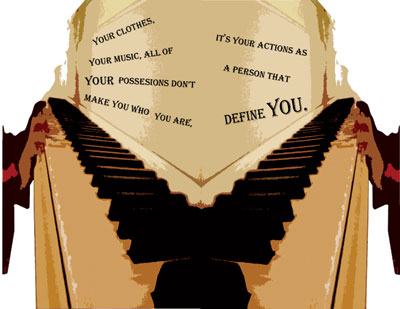All Nonfiction
- Bullying
- Books
- Academic
- Author Interviews
- Celebrity interviews
- College Articles
- College Essays
- Educator of the Year
- Heroes
- Interviews
- Memoir
- Personal Experience
- Sports
- Travel & Culture
All Opinions
- Bullying
- Current Events / Politics
- Discrimination
- Drugs / Alcohol / Smoking
- Entertainment / Celebrities
- Environment
- Love / Relationships
- Movies / Music / TV
- Pop Culture / Trends
- School / College
- Social Issues / Civics
- Spirituality / Religion
- Sports / Hobbies
All Hot Topics
- Bullying
- Community Service
- Environment
- Health
- Letters to the Editor
- Pride & Prejudice
- What Matters
- Back
Summer Guide
- Program Links
- Program Reviews
- Back
College Guide
- College Links
- College Reviews
- College Essays
- College Articles
- Back
Jury Duty
“Will the jury please rise?” the teen clerk asked us, the jury. We rise and take the Oath, then turn to listen to the teen offender’s testimony.
The girl stares at her father across the courtroom, a defeated and dead look in her eyes.
The prosecutor inquires in an arrogant tone, “What happened that night?” The girl responds calmly, “My mom picked me up from my friends’ house. We were driving home on the interstate, when a car from the opposite lane lost control, sped over the median, and collided with us. Head on.”
Unemotional and detatched, the prosecutor continues with her slew of questions. “Where was the marijuana found?”
“Since I was unconscious when it all that happened, I found out later that the firefighters, after pulling my mom and I out of our smashed car, found a tiny baggie in my shirt.”
“Well then.” The prosecutor smirked disapprovingly. “Do you confess to smoking before you got into the car?”
“… My friends were smoking, yes.”
“But were you?”
It meant little to me if the girl answered yes or no at this point. By the look on her face, on her father’s face, you could tell a traumatic event had clearly taken a toll on the two of them. She told her story. No embellished lies, no denying what she had or had not done.
As her father walks to the podium, a sad but determined fearlessness radiating from his worn out janitor uniform, I could tell this father was broken inside. I could see the sadness in his daughter’s eyes as she watched him walk to the podium, the look she’d worn since she walked in. Devastation. Self-loathing. Guilt.
Her father’s few words finalize my opinion.
“ …Firemen had to use the jaws of life…I’m lucky to even have her…takes such good care of her grandmother…her mom too, now…feel bad…comes home from the hospital…have to ground her for this…”
Genuine tears roll down the father’s face, and I find myself stifling my own tears, trying to pose as an unaffected juror.
I then enter the Deliberation Room with the other seven teen jurors.
“ I didn’t like the pity party she was trying to throw for herself, using the car accident as a reason to go easy on her,” scoffs one juror.
“That girl has a bad attitude,” says another.
I look around at the faces of kids my age, who apparently are so perfect, so pure, that they had never been in any kind of trouble.
“I thought her testimony was powerful. She was honest about how the firemen found her little baggie, and …I mean look. I’m crying.” We all laughed a little at that fact. Looking around the table I could see little empathy in their eyes- no mercy.
Watching my fellow jurors tear apart such an emotional case, taught me that sometimes, there has to be some levelheaded leniency. We do not have to be such hard, “rules are rules are rules” zombies walking the world. The girl realized her mistake and showed her remorse. From the father’s few words, anyone could tell that she would not make the same mistake twice. Anything her parents could take away from her, or what we could assign as jurors, could not be worse than the punishment she’d give herself. Her own distress seemed retribution enough.
Walking out of the courthouse that day, I found clarity within my whirlwind of emotions, and thus came to the realization that sometimes emotions need to step in and play role. There is a grey. And sometimes, that grey calls for mercy. I will always leave room for seeing all sides of a problem before passing judgments. It makes for a more just citizen and understanding human being.

Similar Articles
JOIN THE DISCUSSION
This article has 0 comments.
